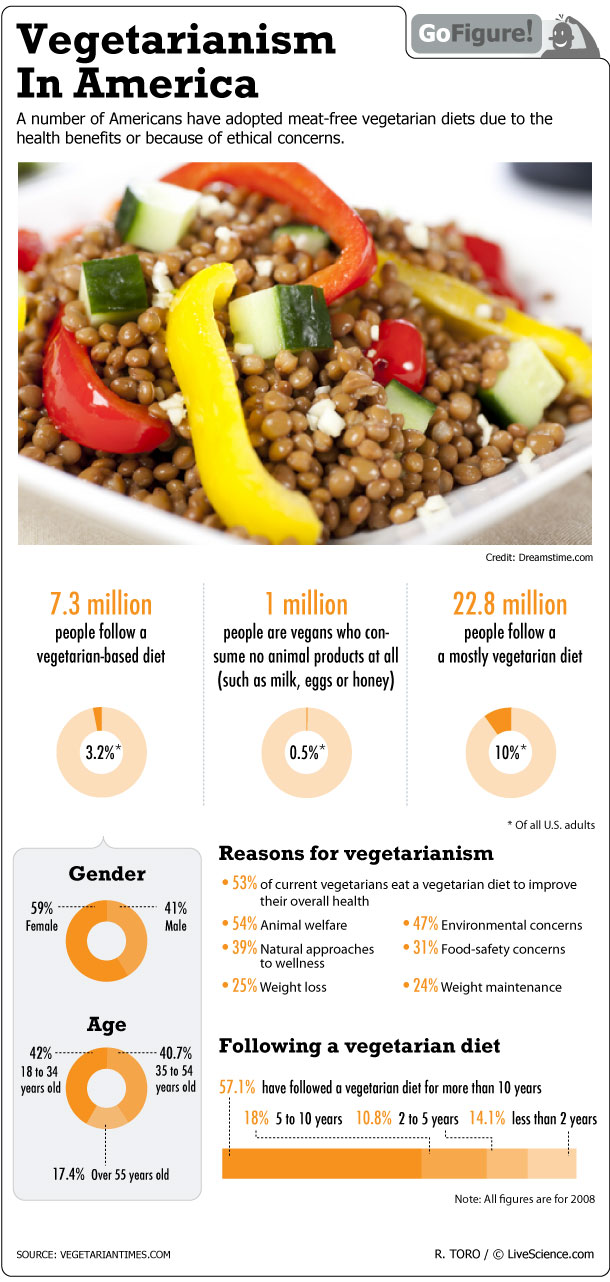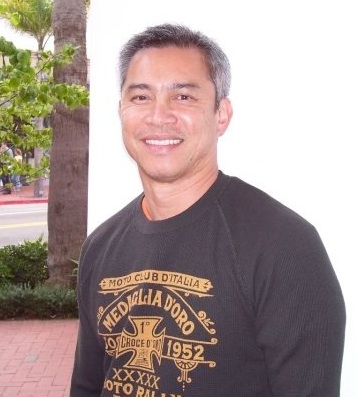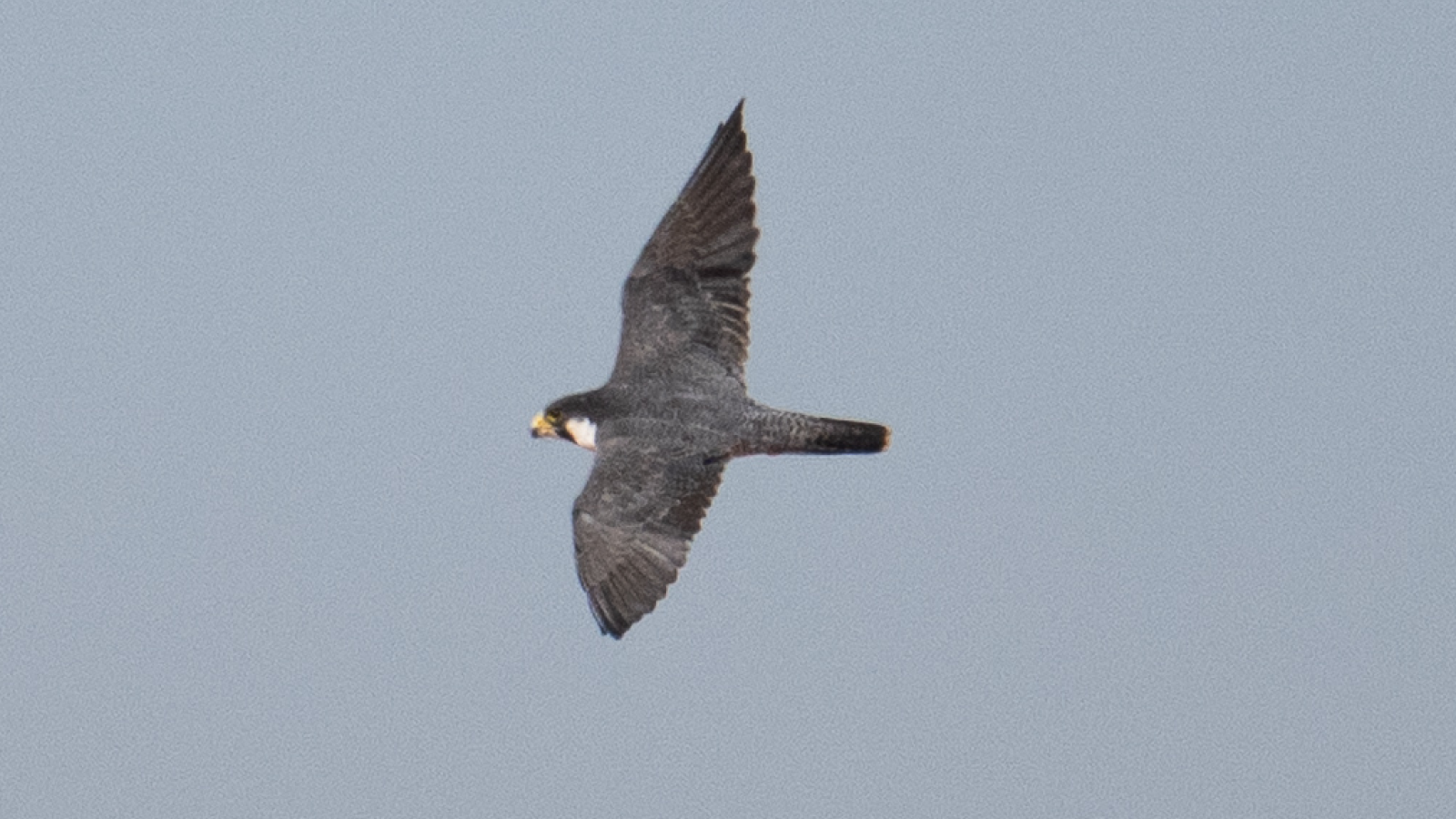Vegetarians and Vegans (Infographic)

Get the world’s most fascinating discoveries delivered straight to your inbox.
You are now subscribed
Your newsletter sign-up was successful
Want to add more newsletters?

Delivered Daily
Daily Newsletter
Sign up for the latest discoveries, groundbreaking research and fascinating breakthroughs that impact you and the wider world direct to your inbox.

Once a week
Life's Little Mysteries
Feed your curiosity with an exclusive mystery every week, solved with science and delivered direct to your inbox before it's seen anywhere else.

Once a week
How It Works
Sign up to our free science & technology newsletter for your weekly fix of fascinating articles, quick quizzes, amazing images, and more

Delivered daily
Space.com Newsletter
Breaking space news, the latest updates on rocket launches, skywatching events and more!

Once a month
Watch This Space
Sign up to our monthly entertainment newsletter to keep up with all our coverage of the latest sci-fi and space movies, tv shows, games and books.

Once a week
Night Sky This Week
Discover this week's must-see night sky events, moon phases, and stunning astrophotos. Sign up for our skywatching newsletter and explore the universe with us!
Join the club
Get full access to premium articles, exclusive features and a growing list of member rewards.
Being a vegetarian or a vegan can mean many things, with definitions, reasons for the chosen diets and preferred menus varying from person to person. As such, the level of health imbued by veganism, say, also varies.
While no universal definition of veganism exists, the term stems from the idea that humans should live without killing or exploiting animals; this means no meat, eggs, milk and, for many vegans, even honey since the bees work for us. So-called ethical vegans extend this doctrine to include all animal products, and so avoid leather, beeswax candles and even bone China porcelain.
According to LiveScience's Bad Medicine Columnist Christopher Wanjek, "Veganism is one of the healthiest dietary lifestyles ... if done properly. It is also one of the unhealthiest diets in town if not done properly, which is often the case."
The diet can be unhealthy if vegans don't get sufficient amounts of needed nutrients only found in animal products, including high-quality protein, healthy omega-3 fatty acids (in fish), calcium, iron, zinc and vitamin B12. "This means that, as a vegan, you need to become skilled in omega-3 fatty acids, for which there are few other than flaxseed; and a variety of protein-containing foods every day such as rice, beans and lentils, to be sure you are getting a complete protein," Wanjek writes. Or you can take these in pill form.
And for vegans who aren't the best cooks or savvy at preparing satisfying non-animal foods, the result can be a craving for more. In that way, some fall back on the same junk as meat eaters, including crackers, potato chips, sugary breakfast cereals and other unhealthy snacks.
- 7 Biggest Diet Myths
- Wishful Thinking: 6 'Magic Bullet' Cures That Don't Exist
- 7 Foods Your Heart Will Hate
Get the world’s most fascinating discoveries delivered straight to your inbox.

 Live Science Plus
Live Science Plus










